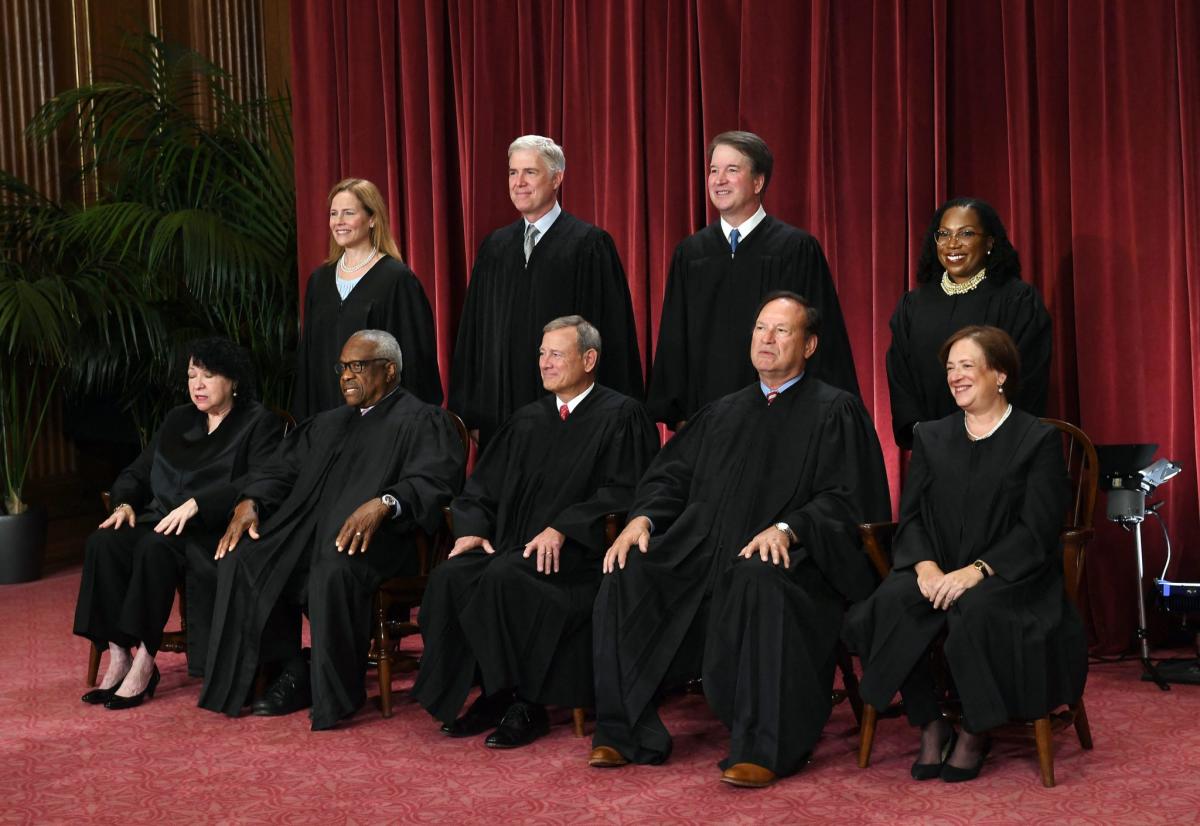Zincwarrior
Platinum Member
- Nov 18, 2021
- 16,985
- 10,361
- 1,138
I would prefer that this is addressed by Congress not SCOTUS, but am wondering how this will impact websites, particularly nonSocial Media sites (like USMB).

 www.yahoo.com
www.yahoo.com

The Supreme Court is about to hear a case that could upend protections Big Tech has enjoyed for years—and the internet may never be the same
A Supreme Court hearing next week could shine a light on how Congress could clamp down on tech, and the future of free speech online.
For years, Washington has been stumped about how to regulate the internet—or if it should even try. But the Supreme Court is set to hear a case next week that could completely transform our online world as we know it.
On Tuesday, justices will hear arguments for Gonzalez v. Google, a case that challenges Section 230 of the Communications Decency Act, a 1996 law that grants internet platforms immunity for most third-party content posted on their websites. The arguments will revolve around tech algorithms, which the plaintiffs say boosted extremist messaging in the lead up to a terrorist attack. They argue that Section 230's protections should not apply to the content a company’s algorithm recommends online, and therefore Google is legally liable for the extremist videos published on its YouTube service.
While the hearing is set for next week, a resolution isn’t expected until June.
Section 230 is the reason why companies like Facebook or Twitter are not liable for content users create, and why a website is not legally at faultyoutu if someone writes a slanderous criticism. But it has come under fire in recent years from critics who say it enables misinformation and protects sites known for spreading hateful and extremist rhetoric. However, experts also fear rollbacks to Section 230 could go too far and irreparably destroy the free speech foundations upon which the internet was built.
Recent A.I. developments, like ChatGPT, have added a new dimension to the fight over 230, as the bots that have so far proven to be unreliable with providing accurate information and getting the facts right could soon be protected by the law.
Some experts say the Supreme Court’s decisions on these cases could represent a unique opportunity to set the rules for Section 230, but others also warn that going too far could gut 230 entirely and make our relationship with the internet scarcely recognizable.
“The more the digital world is interwoven with our physical world, the more urgent this will become,” Lauren Krapf, lead counsel for technology policy and advocacy at the Anti-Defamation League, an anti discrimination group, told Fortune.
The backbone of the modern web
Section 230 has allowed the internet to function the way it does today by enabling websites to publish most content without fear of legal culpability, with one 26-word provision that has been extremely influential in the formation of today’s internet: “No provider or user of an interactive computer service shall be treated as the publisher or speaker of any information provided by another information content provider.”
The Electronic Frontier Foundation, a digital rights organization, says that without Section 230, “the free and open internet as we know it couldn’t exist,” while the law’s provision protecting internet companies is often referred to as “the 26 words that created the internet.”
But those words written more than a quarter century ago have come under scrutiny in recent years, and politicians on both sides of the aisle have targeted 230 as part of a larger effort to regulate the Internet. Even tech leaders including Meta CEO Mark Zuckerberg have proposed that Congress should require platforms to demonstrate they have systems in place to identify unlawful content. But how and to what extent the law should be refined has so far escaped consensus.

